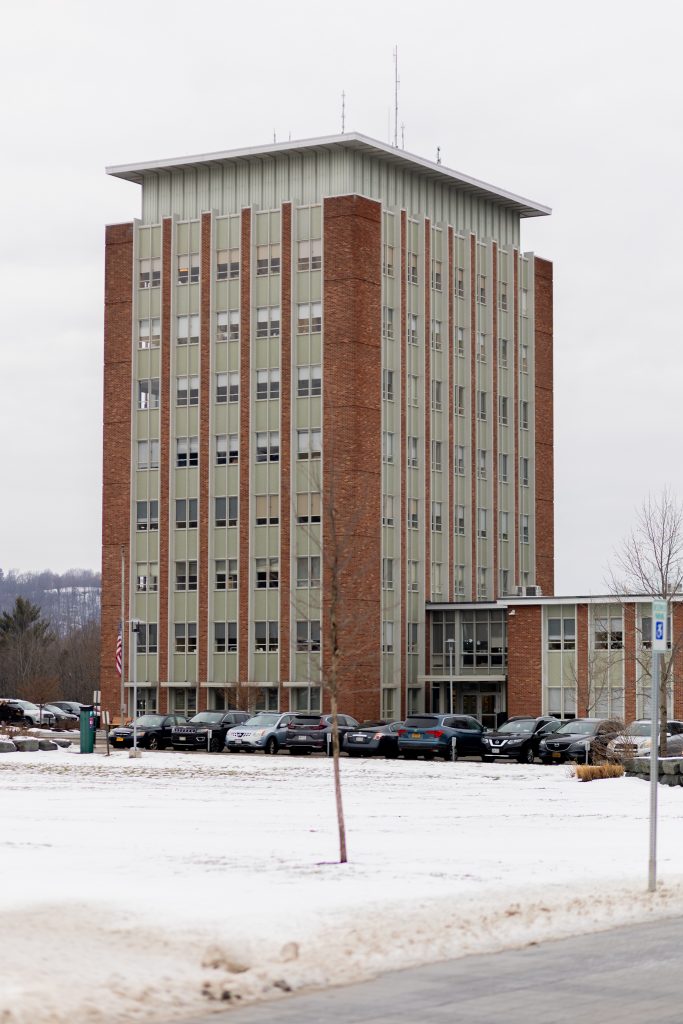The 2024-25 Provost’s Award for Research Grants in Justice, Human Rights and Equity, presented to winners in December, provided nearly $100,000 for faculty research.
This grant was created to fund research related to social inequity in a variety of fields. To qualify, applicants must submit a detailed proposal explaining the importance of their topic and a description of what they will use their budget to accomplish, and the recipients were awarded between $10,000 and $50,000 to support travel, equipment, assistants or other necessary factors in the completion of their project. Three proposals were accepted out of 15 total submissions.
Kun Wang and Suk-Young Kang, both associate professors of social work, received $45,315, which will go toward hiring two graduate research assistants for literature review and data analysis. The funding will also be used to publish articles in open-access journals and attend national conferences.
Their research project, “Structural Intersectionality of Racism, Sexism and Ageism and Older Adults’ Cognition in New York State: Applying the Social Determinants of Health Framework,” was formulated to explore why New York was ranked the second-highest state in the prevalence of Alzheimer’s Disease and Related Dementias in the United States — an issue which disproportionately impacts Black, Indigenous and other people of color.
Wang elaborated on the content of their study and the gaps in existing research that they hope to fill.
“Most research focuses on the mid- and downstream factors, such as education, health behaviors and access to health care services,” Wang wrote in an email. “Compared to these factors, upstream determinants, such as structural inequities, are the fundamental causes of health disparities. In this proposal, we want to create a county-level index of structural intersectionality of racism, sexism and ageism and link it to older New Yorkers’ subjective cognitive decline to better understand and reduce racial [and] ethnic disparities in cognitive health.”
Their research team is connected with Victoria Rizzo, the president of New York state’s National Association of Social Workers chapter and a co-lead on the Steering Committee for Healthy Aging Initiative at the University at Albany. Wang shared her hope that “inter-institutional collaborations’’ will improve their understanding of the Alzheimer’s crisis and Dementia Related Diseases (ADRD) in New York state, aid in seeking state-level support and inform policies that will reduce racial and ethnic disparities in ADRD.
Another grant recipient, David Campbell, a professor of public administration and policy, was awarded $17,500 for travel expenses, due to the international scope of his research into the role of community-based, non-governmental organizations (NGOs) in addressing intractable conflicts. His research will focus specifically on the impact of NGOs on long-term conflicts in Kosovo, Northern Ireland and South Africa. He expressed enthusiasm for this research and stated the importance of spotlighting the humanitarian efforts of people on the ground in these areas.
“I am very excited about this opportunity,” Campbell wrote. “Much of the research on identity-based violence has focused on the role governments, global organizations — like the United Nations — and international NGOs play in preventing it. This funding will provide the opportunity to learn more about how local organizations, led by people from the communities experiencing this violence, work to mitigate it.”
Alexandra Moore, a co-director of the Human Rights Institute and a professor of English, and Suzy Lee, a director and assistant professor for the master of science in human rights, were awarded $33,790 in funding.
Lee explained that their project, “Peacebuilding Women in Exile,” is meant to analyze how the current method used by the UN to support the peacemaking work of women could be modified to better support women who have been exiled.
“Since 2000, the [UN] has made the participation of women in peacemaking and conflict prevention a priority,” Lee wrote. “While the UN’s Women, Peace and Security agenda has made important contributions because its work is focused on peacemaking within the physical territory of the conflict zones, it tends to miss the role of women who have been forced into exile. This population is not insignificant, as war and conflict almost inevitably produce a refugee outflow.”
Moore and Lee plan to use the research money to fund student research assistants to review relevant international law and UN policies and for travel funds to connect with “international partners.”
Donald Hall, the University’s provost and executive vice president for academic affairs, described the function of the grant and its projected effect.
“This peer-reviewed seed grant program provides initial support for research projects that have strong potential to attract external funding and make a significant impact in the arena of justice and human rights,” Hall said.



